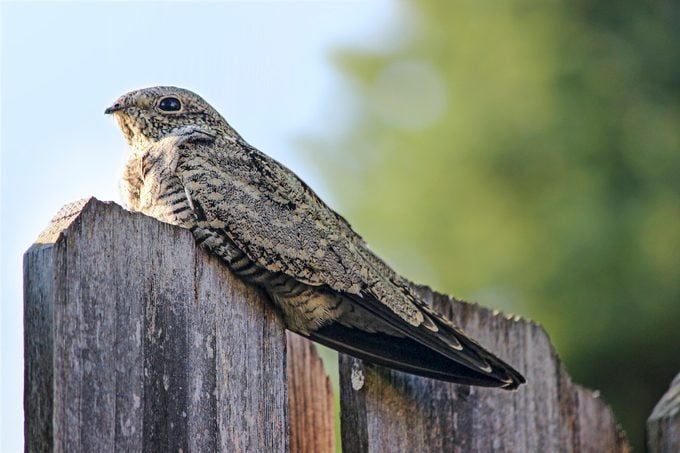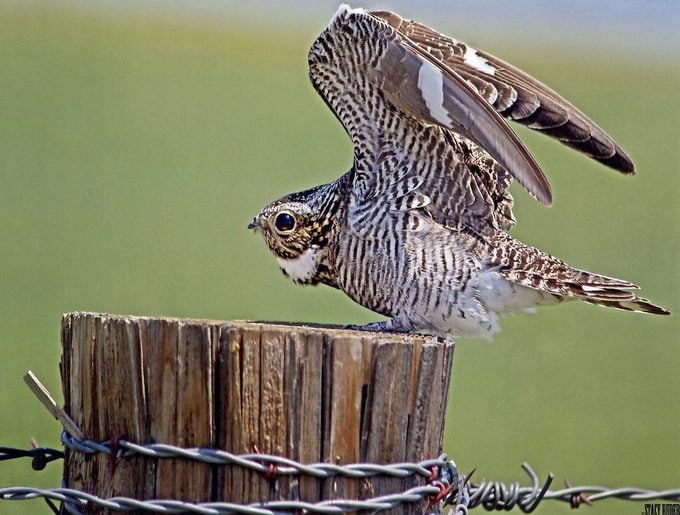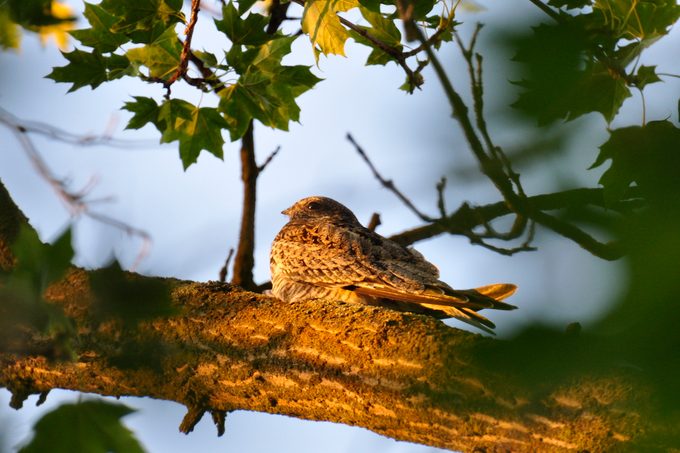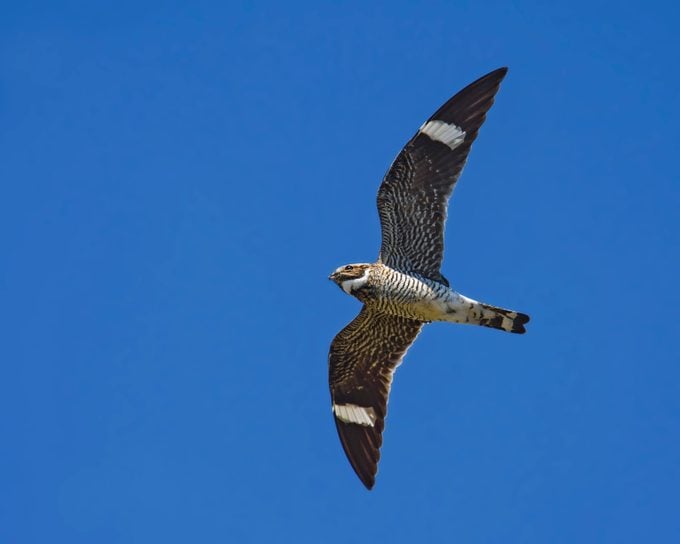How to Identify a Common Nighthawk
Updated: Oct. 03, 2023
Watch the night skies for a common nighthawk. These insect eaters have one of the longest migration journeys of any bird.
Common Nighthawk Identification

“I noticed this bird perched on our fence one fall. Can you identify it?” asks reader Steve Martin of Omaha, Nebraska.
Birding experts Kenn and Kimberly Kaufman say, “This bird is usually seen in flight, and can be genuinely confusing when we find one perched. It’s a common nighthawk. Notice the tiny bill, which opens up to reveal a huge, gaping mouth for catching insects in flight. Other ID points include the big head, short neck and very long wings, extending from the shoulder to the end of the tail.
Mottled brown feathers make good camouflage when the nighthawk is at rest on the ground or a tree branch. The odd perching position of this bird, plopped down on the fence, is because nighthawks have very small feet.
Is a Common Nighthawk a Hawk?

In spite of its name, it is not a member of the hawk bird family. Rather, it is one of the nightjars. Members of this nocturnal group have ridiculously wide mouths, which they use to scoop flying insects right out of the air. Other nightjars include the eastern whip-poor-will and chuck-will’s-widow.
“I was out checking cattle when I came upon this common nighthawk (above). As I got closer, it kept a mindful eye on me, but let me take its picture, anyway. Eventually, it became tired of being my photography subject and got ready for takeoff, which is when I captured this moment,” says Stacy Ruder of Wakeeney, Kansas.
What Does a Common Nighthawk Eat?

These birds will not visit bird feeders but you might spot them from your backyard. At dusk, watch for the common nighthawk’s seemingly erratic flight pattern as it zips through the air to catch insects. True to their name, nighthawks are most active at night, though you can occasionally see them foraging for bugs during the day.
Nests
These birds do not build nests. A common nighthawk will lay its eggs directly on a gravel roof, where they are perfectly camouflaged.
Calls and Sounds

You’ll be alerted to their presence by a pzeent call that sounds similar to that of a woodcock. Additionally, listen as air rushes through the feathers of the common nighthawk in flight, making a whooshing sound.
Range and Migration
You can spot these birds across nearly the entire United States and north into Canada during the summer breeding season, but then they migrate in flocks over a very long distance to spend the winter in South America. This species is one of the latest to arrive in spring.




















